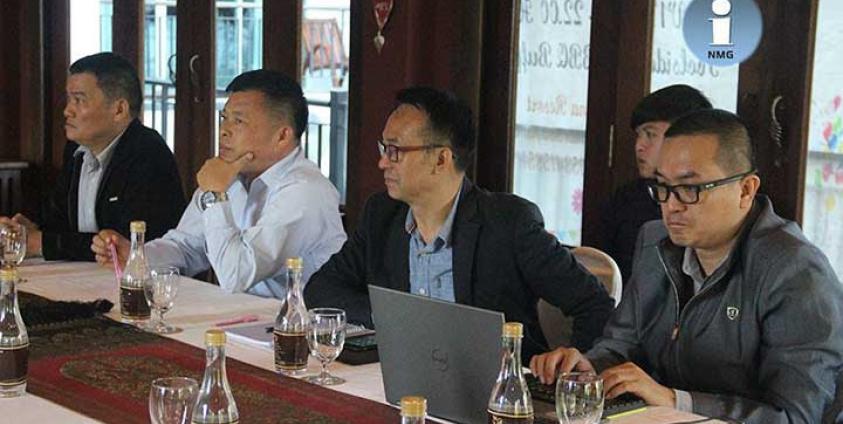SHAN spoke with the RCSS/SSA’s Col Sai Nguen about the informal talks with the Peace Commission, and about the current political deadlock.
The Restoration Council of Shan State/Shan State Army (RCSS/SSA) and the Burmese government’s Peace Commission held an informal meeting in Chiang Mai, Thailand on Monday in an attempt to move Burma’s stalled peace process forward.
Representing the RCSS/SSA were Maj-Gen Bawng Khur, Col Sai Nguen and Sai Liang. From the Peace Commission, secretary U Khin Zaw Oo, advisor U Hla Maung Shwe, President’s Office spokesperson U Zaw Htay and MP U Aung Soe were in attendance.
The Peace Commission also met delegations from the Karenni National Progressive Party and the Kachin Independence Organization on Monday, and the Karen National Union on Sunday.
SHAN reporter Sai Yawd Kham spoke with Col Sai Nguen—Secretary (3) of the RCSS/SSA—about the talks, and to obtain details on the current political deadlock.
We have learned that the RCSS/SSA and Peace Commission held a meeting. When was it?
Yes. We met in Chiang Mai, Thailand, from 10:30 a.m. until 12:30 noon on January 14.
What did the RCSS/SSA discuss in the meeting?
Well, we already agreed to hold a meeting between the RCSS/SSA, the government and the Tatmadaw [Burma Army] in a meeting on November 11, 2018. Actually, we didn’t have a meeting after that. Again, we discussed how we could make a bilateral meeting happen.
The Burma Army declared a unilateral ceasefire on December 21, 2018. We asked questions about what we did not understand regarding this ceasefire—the government representatives explained more about it.
Another thing is that the Burma Army arrested our RCSS/SSA soldiers and our supporters and put them in jail, as well as detained them in a police detention camp. We gave the list of our arrested soldiers and supporters to the Peace Commission. They received it and they will check the list. After that, they will try to secure the release of these people. We also asked questions about the level of negotiation and peace talks has been occurring between the government and the Northern Alliance [ethnic armed] forces.
NMG/ RCSS/SSAPhoto by – NMG/ RCSS/SSA
What is the major deadlock in the peace process?
Major deadlocks cannot be solved in a short time—for instance, non-secession from the Union. Another issue is that of “one army.” When these issues come up in the meeting, it’s really difficult to discuss them. The meeting becomes deadlocked. Actually, we don’t really need to discuss these issues in this level of meeting. Meetings cannot move anywhere when Tatmadaw representatives begin to bring up these issues. They have caused deadlock.
What is the best way to solve those issues to move the peace process forward?
We can solve these problems through discussion and negotiation. We have to seek a way to make these discussions happen. We have to discuss step-by-step in both official and informal meetings. Currently, we are trying for a bilateral meeting, then we will have a collective meeting.
NMG/Photo by – NMG/
Did you talk about the armed conflict in southern and northern Shan State?
No, we didn’t discuss it. We only discussed what was on the agenda.
What message would you like to convey to people about this informal meeting?
We are trying to find a suitable way to overcome the deadlock. We have an opportunity to meet leaders of the government and Tatmadaw. We hope that the RCSS/SSA will have separate meetings with the government and the Burma Army. After that, we will try to find a way to have a meeting between the government and the 10 groups signatory to the Nationwide Ceasefire Agreement. To understand the peace process, our people need to read the news and listen to the radio. Our people must share their opinions with us. We will try our best for the success of the peace process.
This interview has been lightly edited for clarity and brevity.







